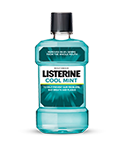How does tobacco affect oral health?
Most people are aware of the harmful effects of tobacco on the body, but the effects of smoking on your oral health is often forgotten.
Tobacco smoke contains thousands of harmful chemicals like carbon monoxide, ammonia, formaldehyde and hydrogen cyanide. It also contains toxic and irritant compounds. Using tobacco in any form, especially smokeless tobacco, puts users at a higher risk of mouth cancer.
How does smoking affect oral health?
Studies have shown that smoking affects your mouth and teeth in many ways. Smoking can cause bad breath, stained teeth and a diminished sense of taste. Long-term smoking can decrease your immune system’s response to bacteria and reduce your salivary flow rate. This puts smokers at high risk of developing serious gum problems like periodontitis.
Can smoking cause gum disease?
Smokers are at much higher risk of increasing the prevalence and severity of gum destruction. Studies show that smokers are three times more likely to have severe gum problems. The number of years of tobacco use is also a factor that contributes to tooth loss, cavities and periodontal disease.
Smokers may initially experience less gum inflammation, compared to nonsmokers. However, this is only due to plaque accumulation. When smokers develop an infection of the gums, it is also less likely to bleed or appear red. For this reason, there may be delays in diagnosing gum problems in smokers as the gums may appear normal. This can lead to the problems worsening without treatment.
Smoking also reduces oxygen supply in the blood flow to all areas of your mouth, including your gums and surrounding bone. The lack of oxygen in the blood affects your natural immune response to bacteria in dental plaque which puts you at risk of developing severe gum problems.
Will Stopping Smoking Cure Gum problems?
You may be asking yourself, “Can quitting smoking reverse gum disease?” or “Will I still get gum problems after quitting smoking?” While giving up smoking can lower your risk of developing gum problems, it can take several months for your mouth to fully heal. However, oral cancer should continue to be a concern as it may take years to develop.
Smoking & Tooth Decay: Are They Linked?
A study of preschool children found that those whose parents smoked were significantly more likely to have dental caries. The scientists believed that the rate of tooth decay was dependent on how long and how often the smoking was taking place. Similar studies in adults found both smoking and smokeless tobacco to increase the number of cavities a person had.
Does Smoking Cause Cavities?
Smoking increases a person’s risk of having cavities, but that cause may have many underlying variables. For instance, dry mouth is a common side effect of cigarette use, and a dry mouth is also a common risk factor for cavities. Tobacco use also causes hardening of the outer shell of enamel, which could potentially make it prone to fractures and then expose underlying surfaces to acids, which creates a cavity.
Does Smoking Cause Tooth Loss?
Using tobacco products can mask symptoms of gum problems, which may lead to cause of tooth loss in adults. Managing oral hygiene to avoid gum problems after quitting smoking is usually easiest, as smoking during any treatment can be counterproductive.
How to manage gum problems and your oral hygiene as a smoker?
The most important aspect in managing gum problem in smokers is quitting smoking. You should talk to your dentist about how to stop smoking. Your dentist can also help you to manage gum inflammation through plaque control. Following up with a daily routine of brushing, flossing and rinsing with LISTERINE® mouthwash will help prevent plaque buildup and give you the added protection your gums need against bacteria. You should also see your dentist on a regular basis for an oral health check-up and professional cleaning.



